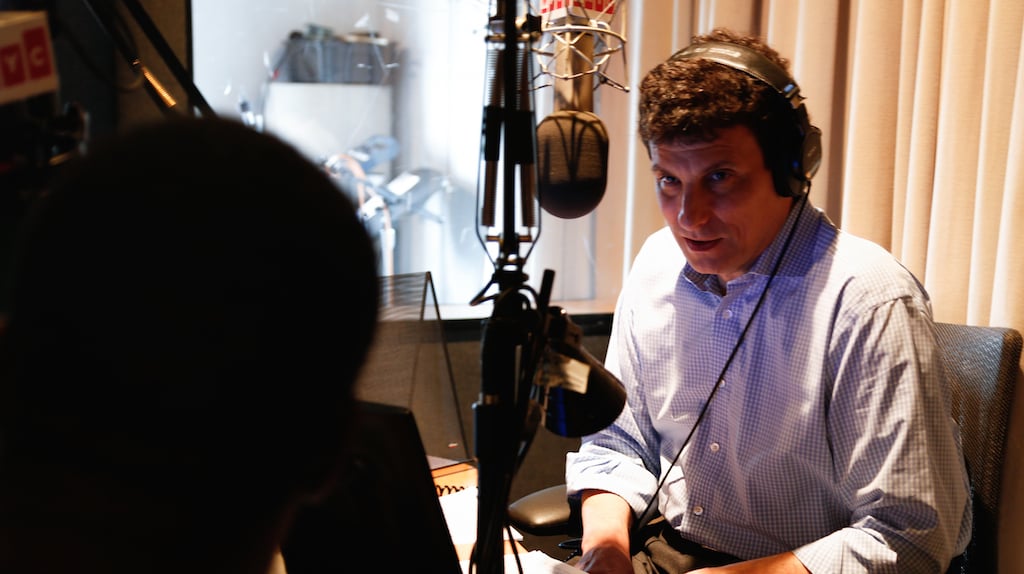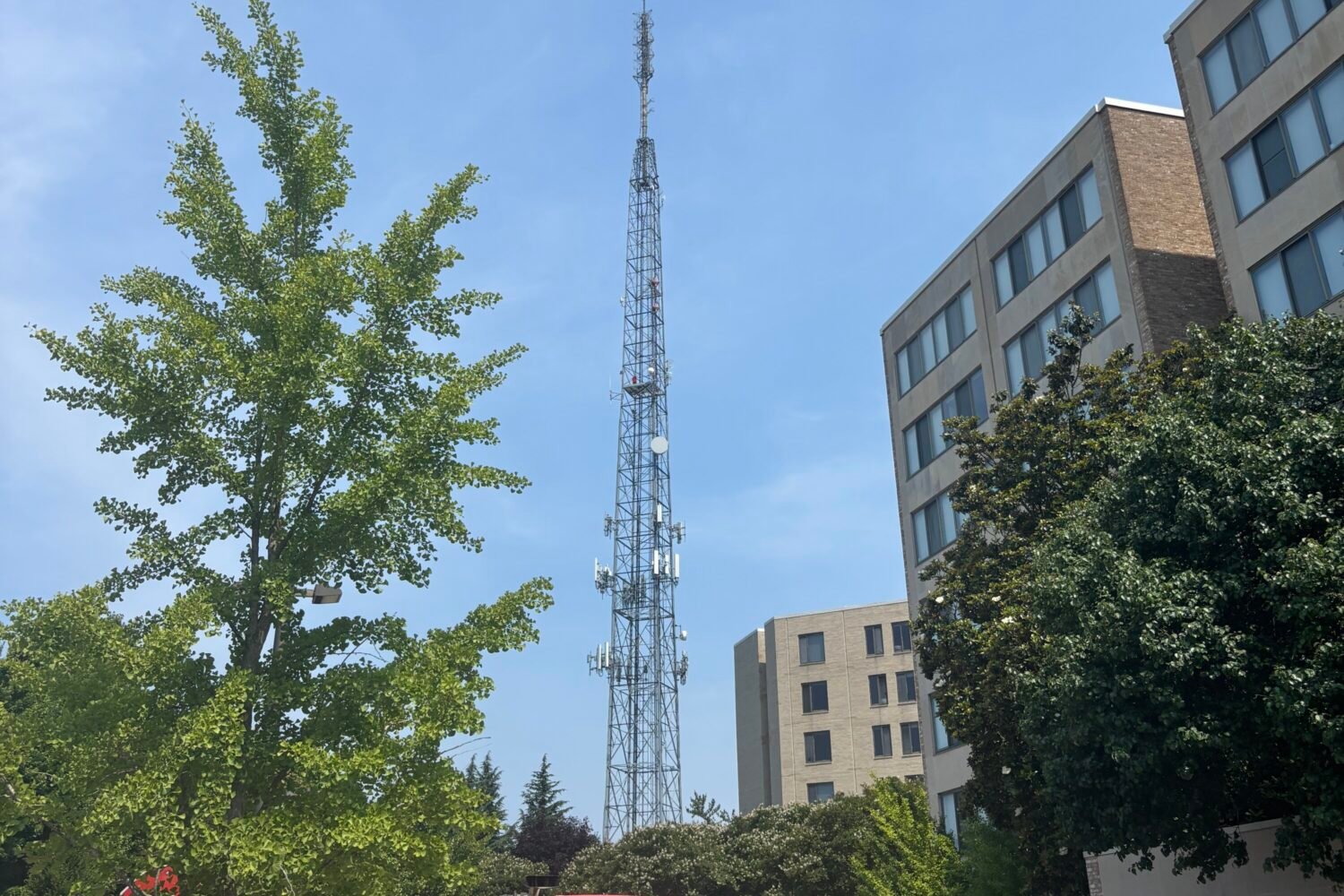Since he started conducting interviews for broadcast, New Yorker Editor David Remnick has learned to care about how he sounds. This is not a small thing for print journalists. “You can’t afford yourself the same Neanderthal self-projection,” Remnick says.
“When I do a print interview I don’t care how I sound, and I don’t care if there’s 20 minutes of silence, as long as my basket’s being filled steadily,” he says, and he can keep directing the conversation, “even with grunts.”
In addition to his duties at the magazine, Remnick now hosts The New Yorker Radio Hour, which WAMU recently started broadcasting in the Washington area on Sundays at 3 PM. The show, also available as a podcast, passed its 17th episode last week and is broadcast on 109 stations around the US.
It sometimes uses magazine stories from its titular magazine as a jumping-off point, but The New Yorker Radio Hour is not an audio version of the publication: “That would be too boring,” Remnick says. “I can’t imagine anything more ridiculous than reading New Yorker comics or New Yorker pieces over the radio, no matter how good. It’s like dancing over the radio.”
New York’s WNYC Studios co-produces the show, and six staffers from the public broadcasting powerhouse have embedded with the magazine in parent company Conde Nast’s building, attending story meetings and spending “much of their time with The New Yorker,” says Dean Cappello, WNYC’s executive vice president and chief content officer. WNYC’s goal is to bring listeners “the actual ‘sound’ of The New Yorker–its reporters, its artists and illustrators, and of course its editor, David Remnick, who, it turns out, is a natural for radio,” Cappello says.
Remnick says his role is not as an “imperial editor,” either on the show or at the magazine. He considers that sort of control-freakery “what the New York Times calls a barnyard epithet,” and says good editors empower writers instead of micromanaging them. He expresses admiration for former New York Yankees manager Joe Torre, who “was able to put great players on the field and let them play as opposed to Billy Martin, who would put great players on the field and make them nervous wrecks.”
The show is fact-checked; Remnick says he’s had to rerecord intros to pieces to capture nuances that researchers felt he’d missed. Conveying humor is as hard to do convincingly on the air as it is in typed journalism–“one of the difficult arts is the profile that’s incidentally funny,” he says. On the show, “We’ve had some things on that are funny that worked but it’s difficult to do even if it lasts two minutes.” He says he doesn’t want a solemn show–“it’s not the Partisan Review Hour“–but he wants its serious stories to be occasionally leavened.
“I’ve believed for a long time that public radio could bring a wider audience to the great work that appears in The New Yorker,” says J.J. Yore, WAMU’s general manager. The magazine “publishes some of the nation’s most sophisticated news and cultural coverage,” Yore says, “so adding a show that’s trying to translate that material into audio is a natural for WAMU’s smart, inquisitive listeners.” The station has been tweaking its lineup as part of a general makeover. Sundays also now feature Freakonomics Radio, Reveal, and The Big Listen, a show about podcasts produced by WAMU’s own Lauren Ober.
Remnick remembers fondly his time in Washington, when he covered sports and other topics for the Post. Going into newsrooms today, he says, is kind of weird: “it’s so quiet because people are reporting by email so much.” The convergence of audio storytelling with the New Yorker‘s traditional strengths “reminds me of the first days when the Web got more ambitious.” Back then, he says, publications’ digital sides got very little resources and served as companion sites. Digital journalism has changed the velocity of print journalism, for the better, mostly: “I think people work a hell of a lot harder because there’s more to do.”



















